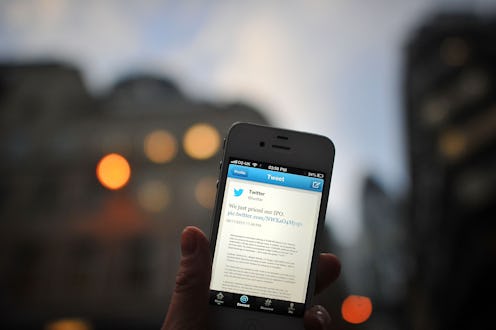News
WaPo Tweets Graphic Rape Description
On Monday evening, the Twitter account of the Washington Post posted a Tweet that immediately sparked ire across the Internet. The problematic Tweet linked to a story about a Potomac School teacher, Christopher Kloman, who had molested dozens of young girls during his time at the Virginia school in the '60s and '70s. The article itself is an important read. But it doesn't justify the crass description WaPo used to draw its Twitter followers to the story. In a Tweet dated 6:58 p.m., WaPo's Twitter broadcast the following:
"He pinned her to the floor and molested her, then he asked a question that's still seared on her mind. wapo.st/18jLnPy"
It was a single sentence, but it was enough for Chicago blogger Jim Romenesko to write up a quick post about it. It was enough for Matthew Yglesias of Slate to say this:
Upworthy-style headlines aimed at exploiting reader curiosity are all the rage these days, but I'd say this is a case study in how you can't just mechanistically apply any old strategy to any old situation... Now the world awaits the inevitable apology with bated breath.
But WaPo is far from the first to use sexual assault in a "teaser" Tweet to pull in readers: rape has been used as "clickbait" material in several high-profile occasions. It happened when India's police chief compared gambling to rape, and media outlets heavily misconstrued what he said. WaPo has done it on at least one other occasion, as have Slate's Emily Yoffe and Dr. Phil.
While Dr. Phil later deleted his Tweet, here's a snapshot:
We get it. Shocking, scandalous headlines or Tweets mean more page hits, more readers, more controversy, more revenue. But using the experience of a sexual assault as a tool for more clicks is like opening up Pandora's box.
Yes, a Tweet or headline should reflect the content of a story. Yes, sexual assault and molestation are important issues for news organizations to cover. But it's one thing to summarize an article about rape, or to write a headline that serves to inform about rape. A "teaser" headline about rape that deliberately serves to intrigue, shock, or sensationalize, is, to say the least, crass and inappropriate. The resulting backlash eclipses any interest there might have been in the story itself. And, frankly, WaPo should have known better.
